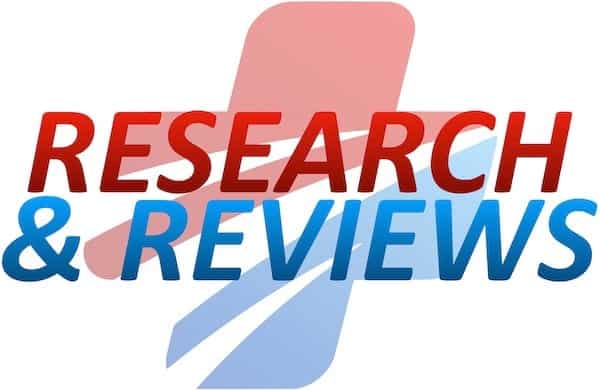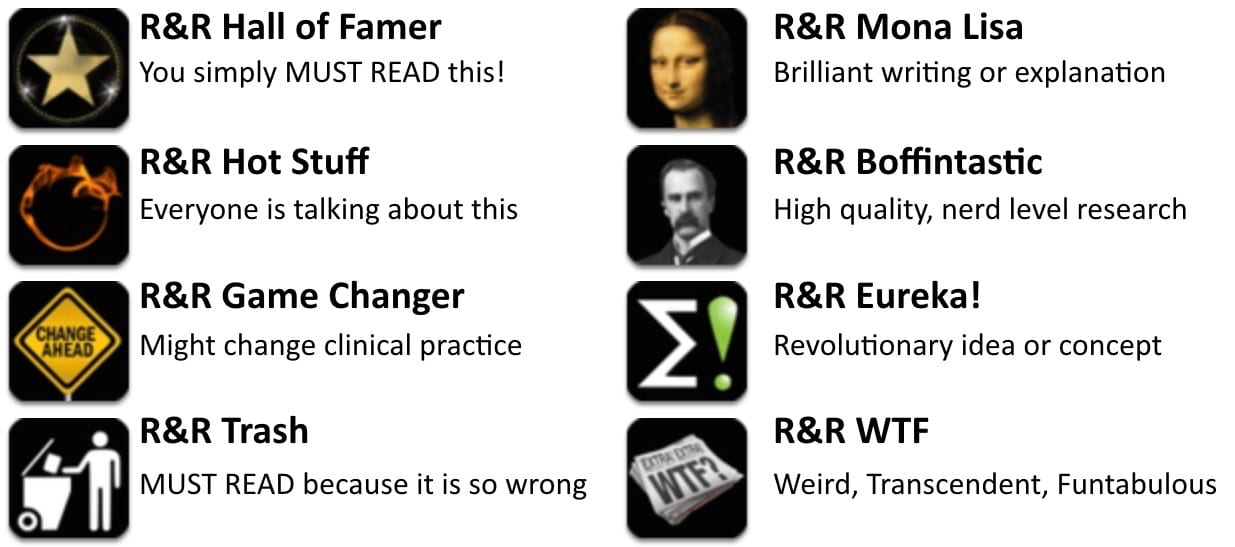R&R In The FASTLANE 143
Welcome to the 143rd edition of Research and Reviews in the Fastlane. R&R in the Fastlane is a free resource that harnesses the power of social media to allow some of the best and brightest emergency medicine and critical care clinicians from all over the world tell us what they think is worth reading from the published literature.
This edition contains 6 recommended reads. The R&R Editorial Team includes Jeremy Fried, Nudrat Rashid, Soren Rudolph, Anand Swaminathan and, of course, Chris Nickson. Find more R&R in the Fastlane reviews in the : Overview; Archives and Contributors
This Edition’s R&R Hall of Famer
Goleman, D. (2000) Leadership that gets results. Harvard Business Review, March-April, pp 78-90.
- There are numerous leadership theories out there. Daniel Goleman’s approach to leadership styles is based on his research into emotional intelligence. It makes for interesting reading and may help you develop your own leadership skills and understand the leaders around you.
- Recommended by Chris Nickson
Long B and Koyfman A. Current Controversies in Thrombolytic Use in Acute Pulmonary Embolism. JEM 2016. PMID: 27071316
- Not all patients with submassive PE require thrombolytics in treatment. To date there have been no studies showing mortality benefit, but there have been some studies showing benefit in functional outcome. Patients with Submassive PE require a case-by-case evaluation with shared decision making in the use of thrombolytics.
- Recommended by Salim R. Rezaie
Berger-Pelleiter E, et al. Hypertonic saline in severe traumatic brain injury: a systematic review and meta-analysis of randomized controlled trials. CJEM 2016. PMID: 26988719
- Hypertonic saline seems to be recommended more and more often for intracranial hypertension. What is the evidence in traumatic brain injury?
This is a systematic review and meta-analysis that identified 11 RCTs covering 1820 adult patients with traumatic brain injury comparing hypertonic saline to either mannitol (½ the studies) or another solution (often normal saline, or even hypotonic saline.) Hypertonic saline did not decrease mortality (RR 0.96, 95%CI 0.83-1.11). It didn’t lower intracranial pressure (weighted mean difference -0.39, 95%CI -3.78 – 2.99). And it didn’t improve functional outcomes (RR 1.12, 95% CI 0.92-1.36). Maybe we shouldn’t be rushing to adopt hypertonic saline in the management of traumatic brain injury. - Recommended by Justin Morgenstern
Johnston SC et al. Ticagrelor versus Aspirin in Acute Stroke or Transient Ischemic Attack. NEJM 2016. PMID: 27160892
- Another reminder that new does not mean better. In this RDCT of patients with stroke or high risk TIA (ABCD2 > 4), ticagrelor was no better than aspirin in preventing subsequent stroke, MI or death in the next 90 days. There was no increased bleeding or other side effects with ticagrelor but, aspirin costs pennies in comparison to the newer drug.
- Recommended by Anand Swaminathan
Maddow CL, et al. Efficient communication: assessment-oriented oral case presentation. Acad Emerg Med 2003. PMID: 12896884.
- Nice little study on “assessment-oriented case presentations.” Briefly, give the answer first. Especially when talking to consultants (definitely with surgeons) rather than rambling on with a mystery story. COI: the first auther is married to my sister, and the last author’s office is adjacent to mine.
- Recommended by Seth Trueger
Friedman BW, et al. Diphenhydramine as Adjuvant Therapy for Acute Migraine: An Emergency Department-Based Randomized Clinical Trial. Ann Emerg Med 2016 PMID: 26320523
- Looks like diphenhydramine doesn’t help all-comers with migraines in the ED. My bet is there might be a subset of patients it does help; if the patient has had it before and requests it, sure. But no longer a routine part of my migraine cocktail.
- Recommended by Seth Trueger
Emergency physician with interest in education and knowledge translation. #FOAMed Fan | @jdfried |






